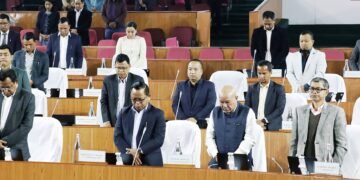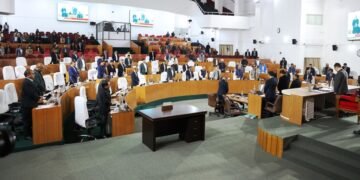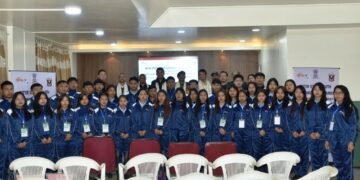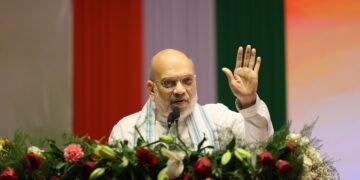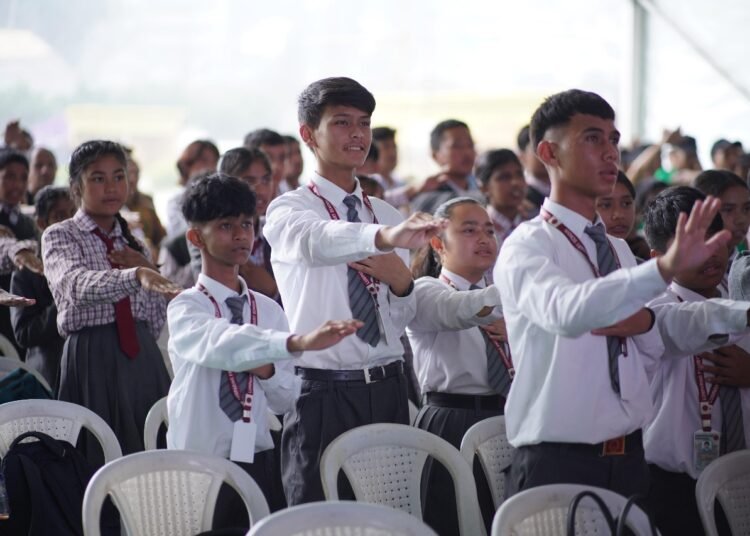Meghalaya, whose capital Shillong is routinely ranked towards the bottom of national rankings on cleanliness, will turn over a new leaf and compete to be the best in the country, the state government has vowed.
As recently as January, Shillong was ranked as the worst capital city in the North East and the 436th ranked town (with a population of more than 1 lakh) in the country by cleanliness, scoring poorly for door-to-door collection of waste, source segregation of waste and condition of public toilets. Despite the city’s filthy rivers, it somehow managed to score 100 percent for its water bodies’ cleanliness.
Today, on the banks of the heavily polluted Wah Umkhrah, though well shielded from its malodorous waters, the Urban Affairs Department launched the ‘Swachhata Hi Seva’ (SHS) 2024, a fortnight running to October 2 to promote cleanliness in nature and the mind.
Deputy Chief Minister Sniawbhalang Dhar, who holds charge of Urban Affairs, stressed on the importance of a clean environment and the responsibility of each citizen to play their part in ensuring a clean environment.
He highlighted that the national Swachh Bharat Mission, launched in 2014, is a crucial programme that requires public participation to succeed. It was under this mission that green and blue dustbins were placed around Shillong but over the years these have all but disappeared and have never been replaced, which does not help with the aim to reduce litter.
Dhar mentioned that the Urban Affairs Department has Rs 5.8 crore for footpath renovation in Iewduh and a proposed Rs 15 crore for upgrading the traditional market. (Meghalaya had scored just 53 percent in cleanliness of markets in the rankings released in January.) The revamped market will feature separate sections for vegetables, wet markets and clothing, he said.
Moreover, Dhar also shared his vision to make Meghalaya one of India’s top tourism destinations within five years, emphasising the importance of cleanliness in achieving this goal.
East Khasi Hills Deputy Commissioner RM Kurbah spoke about the working conditions of sanitation workers, saying that they should be respected for the vital work they do. Kurbah mentioned that 70 e-vehicles have been earmarked by the government, out of which 67 have been received and are functional, to collect waste from homes.



